Just In
- 3 hrs ago

- 7 hrs ago

- 10 hrs ago

- 13 hrs ago

Don't Miss
- News
 Jailed Former Maldives President Abdulla Yameen Released, Court Orders Fresh Trial In Bribe Case
Jailed Former Maldives President Abdulla Yameen Released, Court Orders Fresh Trial In Bribe Case - Sports
 Pakistan vs New Zealand: Babar Azam, Shaheen Afridi Heartwarming Hug Amidst Speculations of Discord
Pakistan vs New Zealand: Babar Azam, Shaheen Afridi Heartwarming Hug Amidst Speculations of Discord - Finance
 Big News For F&O Traders! NSE To Launch Derivatives On Nifty Next 50 From April 24; Key Highlights!
Big News For F&O Traders! NSE To Launch Derivatives On Nifty Next 50 From April 24; Key Highlights! - Movies
 Yeh Rishta Kya Kehlata Hai Controversy: YRKKH Actor Makes BIG Revelation About Shehzada Dhami: Alag Dhang Se K
Yeh Rishta Kya Kehlata Hai Controversy: YRKKH Actor Makes BIG Revelation About Shehzada Dhami: Alag Dhang Se K - Automobiles
 Aprilia RS 457 Accessories: A Detailed Look At The Prices
Aprilia RS 457 Accessories: A Detailed Look At The Prices - Education
 Karnataka SSLC Result 2024 Soon, Know How to Check Through Website, SMS and Digilocker
Karnataka SSLC Result 2024 Soon, Know How to Check Through Website, SMS and Digilocker - Technology
 Nothing Ear, Ear a With ANC, Up to 42.5 Hours of Battery Launched; Check Price and Availability
Nothing Ear, Ear a With ANC, Up to 42.5 Hours of Battery Launched; Check Price and Availability - Travel
Telangana's Waterfall: A Serene Escape Into Nature's Marvels
13 Effective Home Remedies For IBS
Irritable bowel syndrome (IBS), also called spastic colon and mucous colitis, is a gastrointestinal disorder. In this condition there is abdominal cramping or pain, episodes of diarrhea followed by constipation, bloating, gas, mucus in the stool, nausea, headache, depression, and fatigue. Irritable bowel syndrome (IBS) is a relatively common problem among many people. The exact cause of IBS is unknown. It may be due to abnormalities in the gut flora(good bacteria) or the immune system. There are effective home remedies to help ibs symptoms (ibs: irritable bowel syndrome). Since IBS can't be cured, however we can treat its symptoms.
The problem with IBS is that it affects the quality of life. It is a source of chronic pain, fatigue, and it has also been suggested that some IBS patients may develop depression. IBS can be brought under control by taking proper foods that help ibs symptoms (ibs: irritable bowel syndrome). To help IBS patients, it is recommended to use a combination of treatments. We will discuss with you some natural ways cure irritable bowel syndrome.
How to treat ibs symptoms naturally? Today Boldsky will share with you some home remedies to help ibs symptoms. Have a look at some foods that help ibs symptoms (ibs: irritable bowel syndrome).

Soluble Fiber
It is one of the safe and effective home remedies to help ibs symptoms.(ibs: irritable bowel syndrome). Soluble fiber soaks up liquid in your intestines, helping to prevent diarrhea. Good sources are beans, oatmeal, and some fruits, such as apples, strawberries and grapefruit. Having soluble fiber in your diet is one of the best cures for ibs diarrhea.
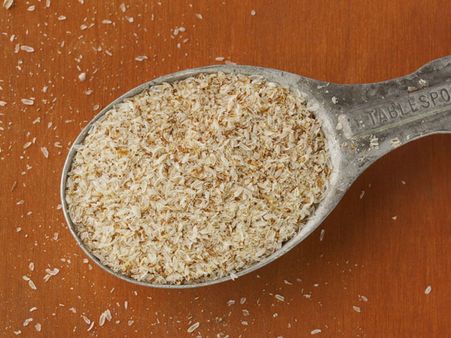
Psyllium(Ispaghula)
If you can't seem to get enough soluble fiber in your diet, take a daily supplement of psyllium (ispaghula). It is a safe and natural laxative unlike chemical laxatives. It is safe to take it for a longer time without any side effects.

Peppermint
Peppermint improves IBS symptoms. Peppermint is used to calm muscles in the colon, which may give relieve from diarrhea and abdominal discomfort suffered by people with IBS. Peppermint has also anti-spasm properties so it may improve intestinal pain and flatulence. You can consume peppermint as a herbal tea after dinner, or try the peppermint oil capsules. Pepper is one of the best home remedies to help ibs symptoms (ibs: irritable bowel syndrome).

Slippery Elm
Slippery elm calms gut irritation by coating the lining of the intestinal system, thus giving it time to heal and prevents further damage. Slippery elm is best taken in capsule or powder form mixed with water.

Aloe Vera
Aloe vera has anti-inflammatory effect reduce the pain and inflammation associated with IBS. It helps to sooth and reduce inflammation in the gut lining. You can consume it as a juice or capsules. Taking aloe vera is not recommended for children or pregnant women, or if you have diabetes, kidney failure or thyroid disease.
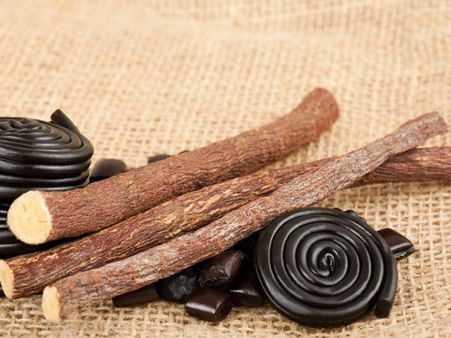
Liquorice
How to treat ibs symptoms naturally? (ibs: irritable bowel syndrome) Liquorice is very effective in treating IBS symptoms. It is often used for its anti-inflammatory effects. It contains a compound which helps to sooth and repair the irritated gut lining. You can consume it as a herbal tea or tincture.
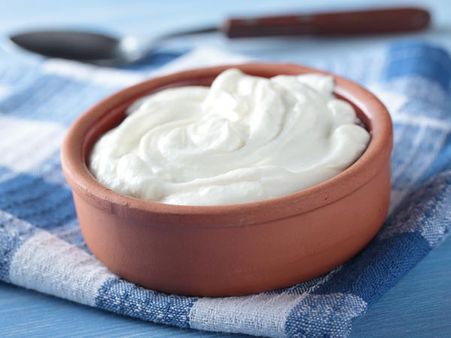
Yogurt
Yogurt that contains ‘live cultures' ( good bacteria) is a popular remedy for IBS diarrhea. Live cultures are friendly bacteria that provide a layer of protection in the intestines and help generate lactic acid to flush out bacterial toxins from the body. It is one of the safe and natural ways cure irritable bowel syndrome. Have it several times a day until you notice improvement in your condition. You can also mix one-half teaspoon of ispaghula and one cup of yogurt. Eat it one hour after your lunch and dinner. Repeat daily until there is improvement.
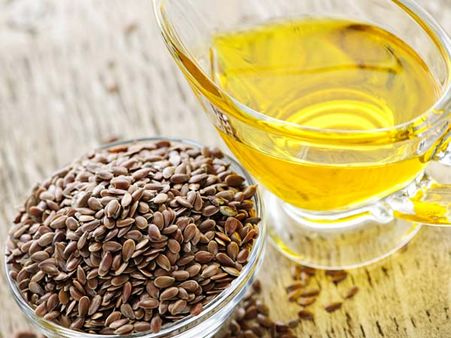
Flaxseed
Flaxseed is a good source of dietary fiber required for the smooth passage of waste products. flaxseed is a good source of omega-3 essential fatty acids that are known to support the immune and digestive systems. Both constipation and diarrhea in IBS can be treated with flaxseed. Take one tablespoon of freshly ground flaxseed with water, once daily. You can also make it's tea and have it before going to bed. Drink daily to keep your stomach clean and free from gas.
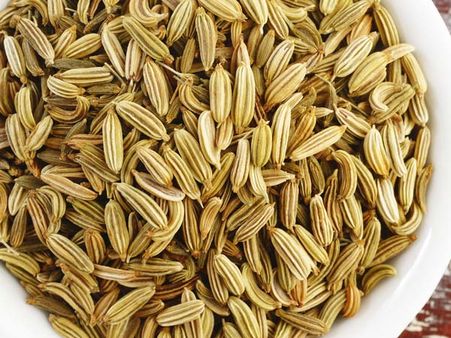
Fennel Seeds
Fennel seeds can relieve the intestinal spasms and bloating associated with IBS. Fennel seeds also help in eliminating fats from the digestive system, thus inhibiting the over-production of mucus in the intestine that contributes to IBS. You can make a tea of fennel seeds. Have this herbal tea three times daily to prevent and reduce IBS symptoms.
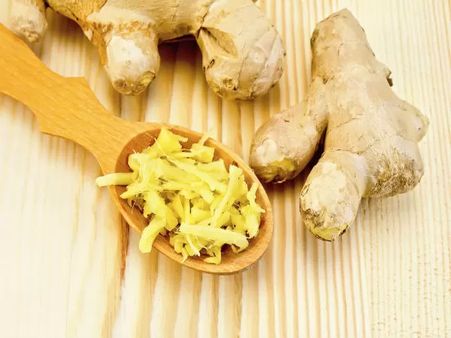
Ginger
Ginger can reduce gas and bloating, hence it is often recommended for treating IBS. Also, ginger can reduce inflammation in the intestines and relax the intestinal muscles. You can drink ginger tea two or three times a day to ease cramps and abdominal pain. You can grate a piece of ginger and add one teaspoon of honey to it. Eat this mixture before having your lunch and dinner to get rid of diarrhea. It will also improve your digestion.
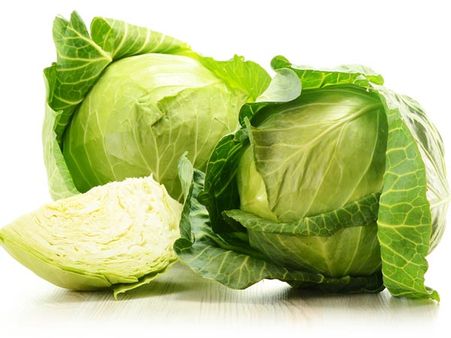
Cabbage Juice
Cabbage
juice
is
another
very
effective
remedy
for
IBS
sufferers
who
experience
constipation.
The
mild
laxative
effect
of
cabbage
juice
makes
bowel
movements
softer
and
easier
to
pass
as
well
as
help
keep
the
body
hydrated.
It
is
one
of
the
effective
and
natural
ways
to
treat
ibs
constipation.(ibs:
irritable
bowel
syndrome)
In
some
people,
cabbage
juice
may
cause
bloating
and
flatulence.

Supplements
Supplements such as evening primrose oil, borage oil, fish oil, fiber or probiotics may help relieve IBS. Oil supplements help calm down the gut, and probiotics restore the good balance of bacteria in the digestive system. Consult with your doctor before taking any supplements if you are taking any prescription medications.

Avoid Some Foods
People suffering from IBS must take proper foods that help ibs symptoms. There are certain foods that should be avoided. In general, foods that are high in fat, fried foods, spicy foods, alcohol, sugar and caffeinated coffee and tea can be problematic. It's also best to avoid gas producing foods, such as beans, cabbage, broccoli, Brussels sprouts, cauliflower, peas and onions. These can cause significant bloating, gas, and abdominal pain in IBS sufferers. It's also advisable to use lactose-free or reduced-lactose dairy products.
-
 healthDiarrhoea 101: Causes, Symptoms, Risks, Complications, Treatment, Prevention, Diet And More
healthDiarrhoea 101: Causes, Symptoms, Risks, Complications, Treatment, Prevention, Diet And More -
 healthDiarrhoea 101: Causes, Symptoms, Risks, Complications, Treatment, Prevention, Diet And More
healthDiarrhoea 101: Causes, Symptoms, Risks, Complications, Treatment, Prevention, Diet And More -
 healthHome Remedies for Loose Motion
healthHome Remedies for Loose Motion -
 healthSummer Heat Irritating Your Stomach? Home Remedies For Loose Motion In Summer (Summer Diarrhea)
healthSummer Heat Irritating Your Stomach? Home Remedies For Loose Motion In Summer (Summer Diarrhea) -
 disorders cureKeto Diarrhoea: What Causes This Condition While Following Keto Diet?
disorders cureKeto Diarrhoea: What Causes This Condition While Following Keto Diet? -
 wellnessHow Does Salt Water Colon Cleanse Work
wellnessHow Does Salt Water Colon Cleanse Work -
 wellnessWhat Causes Itchy Buttocks?
wellnessWhat Causes Itchy Buttocks? -
 nutritionWhy Its Good To Add Drumsticks To Sambar
nutritionWhy Its Good To Add Drumsticks To Sambar -
 basics3 Best Tips To Deal With Diarrhea During Pregnancy
basics3 Best Tips To Deal With Diarrhea During Pregnancy -
 disorders cureWays To Deal With Diarrhoea and Heartburn
disorders cureWays To Deal With Diarrhoea and Heartburn -
 wellnessIf You Are Going To The Toilet More Than Thrice A Day, Read This!
wellnessIf You Are Going To The Toilet More Than Thrice A Day, Read This! -
 nutritionAmazing Health Benefits Of Coriander
nutritionAmazing Health Benefits Of Coriander


 Click it and Unblock the Notifications
Click it and Unblock the Notifications



